Iran Switches From Liquid Gas To Polluting Fuels At Power Plants
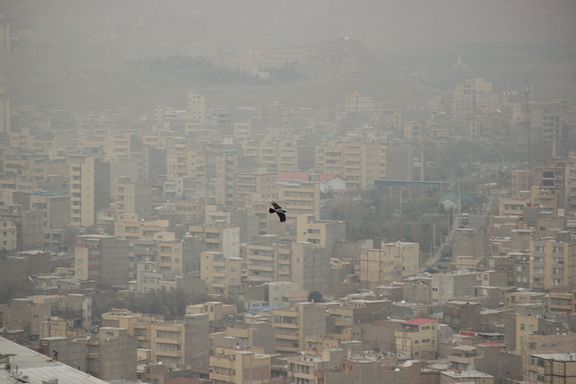
Power plants in Iran have have switched from natural gas to heavy fuel oils before the peak winter months, in what could lead to heavy pollution in cities.

Power plants in Iran have have switched from natural gas to heavy fuel oils before the peak winter months, in what could lead to heavy pollution in cities.
The head of electricity generation in Iran’s East Azerbaijan province, Mohsen Mousavi told a meeting in the provincial capital Tabriz that the energy ministry ordered them to begin using mazut instead of liquid gas months before Iranian power plants usually do the switch in high-demand winter months.
Iran has been experiencing natural gas shortages to fuel its power plants in cold and hot months. Last winter and early in summer, power plants switched the mazut, which is a dirty diesel fuel. Heavy smog and pollution covered major cities leading to public outcry.
The early use of mazut will inevitably lead to dangerous levels of pollution in major cities, as the cold season is just beginning in Iran and could last until late February. Mousavi said the power plant in Tabriz belongs to a private owner and the government cannot even install equipment to reduce pollution. The plant produces just 300 megawatts of power and a local official said it is not worth endangering the lives of the city’s residents.
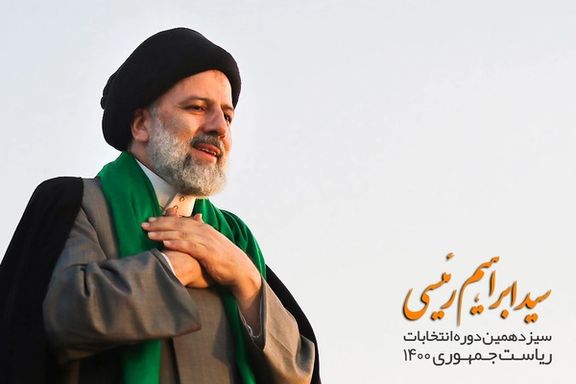
For the second time since taking office, President Ebrahim Raisi gave a televised interview Monday to explain how he wants to tackle Iran's economic crisis.
The highlight of what he said was a point that was not new: "I am not going to tie the people's livelihood to the nuclear negotiations."
This has been one of his persisting slogans in recent weeks, meaning Iran will not make concessions to the West to get sanctions relief. Instead, it will try to deal with its economic crisis through self-reliance and closer relations with China and Russia.
Conservative news website Alef, however, wrote in a commentary on Tuesday that the president can solve problems only if he has the right middle managers.
Alef wrote: "Some 75 days after taking office as President, still many seats remain vacant in Raisi's administration." Citing the government's own website, Alef wrote that parts of the government including the President's Office and the Interior Ministry still do not have the right officials that can bring about the changes planned by Raisi. The Ministry of Education has still no minister more than a month after the beginning of the new academic year.

Alef noted that "the least degree of overhaul has taken place in the economic ministries, where changes are most needed." The website observed that with all the tough economic problems the government faces, there is no one to carry out orders coming from the top.
As an example, according to moderate conservative Khabar Online website, Raisi once again issued orders to three ministries on Tuesday to take measures "to give peace of mind to the people about their livelihood and to put an end to inaction within the government and to sort out the instability in the markets." Like always, Raisi called for "immediate, serious and revolutionary measures" while observers say there is no one to carry out these orders.
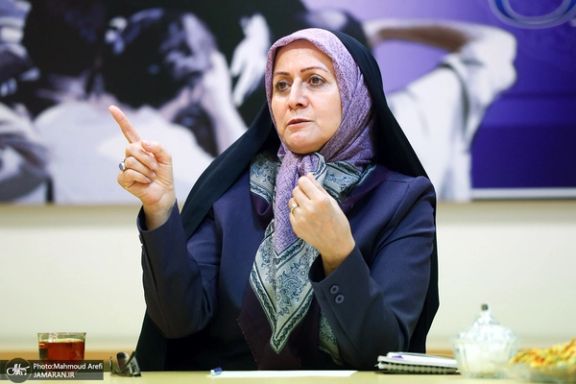
In an interview with reformist daily Arman, right-of-center former lawmaker and Tehran City Council member Sharbanu Amani said that the most important problem for Raisi is that his government "has no plans and roadmaps and that is why it seems to be confused about many things."
Ms. Amani charged that neither Raisi, nor his aides have ever told the people about the details of their plans for solving the country's problems. She added that "although Raisi has been part of the Iranian government for at least 40 years, he still does not have a full team to support him. There was no team even when he was running for the office."
The outspoken politician said: "Raisi was elected in an extremely low-turnout election. He was expected to be in a hurry to seek the nation's support by acting quickly to solve problems. But we see that he has set up one of the weakest administrations in Iran when we look at his top officials. Most of his managers, who are mainly the former aides of Mahmoud Ahmadinejad, look at problems from a military and security perspective. This comes while we expected him to behave in a way that would return the public's trust in the government."
Amani said Raisi may find it difficult to restore public trust. In his visit to Bushehr Province, he asked the local governor to solve long-standing problems within ten days while everyone knows that would be impossible as economic problems cannot be solved by issuing orders.
Ms. Amani warned that Iran's economic crisis is serious, yet, the Raisi administration has not taken any positive step to solve Iran’s nuclear dispute and help lift sanctions, while the Covid pandemic is also taking its toll. The parliament, packed by hardliners, which was supposed to help the likeminded president has done nothing. In the meantime, useless decisions such as a planned 20-year deal with Venezuela, a country with its own severe economic crisis is questionable. Selecting Mohammad Eslami as nuclear chief and Hossein Amir-Abdollahian as Foreign Minister were also wrong decisions. They do not know the basics of their job, she maintained.
However, Ms. Amani said: We cannot blame Raisi for all the problems. Those who omitted all other candidates and narrowed down the people's choice to Raisi are also to be blamed for the situation.
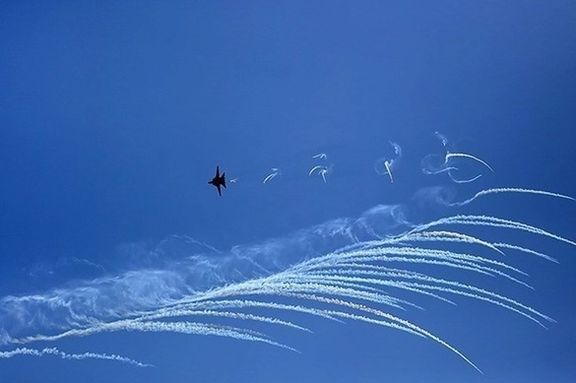
Iran's air force has begun the last round of exercises on Thursday with warplanes and drones in action, a statement carried by government-controlled media said.
The commander of the army’s air force, General Hamid Vahedi said that for the first time in the ten-year history of the annual drills, operations were tested on a “decentralized” fashion.
Command centers in the central city of Esfahan, Bushehr and Bandar Abbas on the Persian Gulf, Dezful in the southwest, Tabriz in the northwest and central command guided warplanes to their air and ground targets.
The Islamic Republic does not possess an effective traditional air force capable of competing with modern rivals due to decades of sanctions preventing the purchase and maintenance of warplanes. Instead, it has relied on the development of a large missile arsenal, with a range of 2,000 kilometers. It is also developing a large fleet of drones and trying to make equip them with more electronic equipment for guidance and evasion.
The statement claimed that aircraft were able to refuel in the air “both within and beyond the borders”. It also said an important goal of the drills was to test low-altitude flight without the use of aircraft’s navigation system.
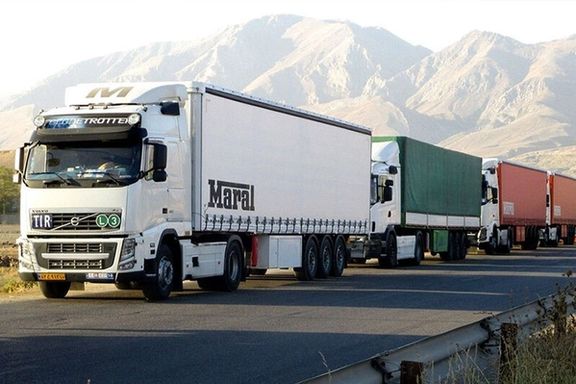
Iran’s Roads and Transportation Agency has banned Iranian trucks from travelling to Nagorno Karabakh controlled by Armenians to avoid Azerbaijani protests.
In September tensions flared up between Iran and the Republic of Azerbaijan after Baku arrested two Iranian truck drivers, accusing them of going to Nagorno Karabakh that lies within its international borders.
The tensions led to military drills by each side and political mudslinging, including Iranian accusations that Azerbaijan allows an Israeli military and intelligence presence on its territory.
Iran has tried to remain neutral in the conflict between its two northern neighbors but is concerned of more Azerbaijani encroachments on Armenian territory after last year’s war in which Baku took back most of the territories it had lost to Armenia in the early 1990s.
The Agency has told transportation companies not to send trucks to the disputed region from Armenia, reminding them of a foreign ministry directive that entering the region from any point other than Azerbaijani border posts would violate the latter’s territorial integrity.
Most of Iran’s exports to Armenia travel along a road partly controlled by Azerbaijan. Tehran and Yerevan earlier agreed to widen and expand another route that would allow trucks to travel without hindrance.
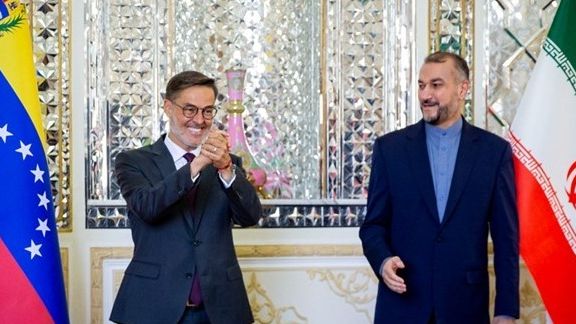
Iranian media and pundits are questioning the government's planned 20-year cooperation agreement with Venezuela and the 25-year strategic agreement with China.
Foreign minister Hossein Amir-Abdollahian said Monday that a 20-year cooperation agreement would be reached with Venezuela during President Nicolas Maduro’s trip to Iran in the coming months. While in Moscow this month, Amir-Abdollahian said Iran was ready for a strategic partnership with Russia.
Tehran and Beijing signed a 25-year strategic cooperation agreement in March under which Iran hopes to attract Chinese investments and bolster diplomatic support. Beijing has balanced a willingness to risk United States sanctions in some areas – especially by continuing to buy Iranian oil – against the strategic interest of many Chinese entities in US markets and by its developing links with Gulf Arab countries and Israel.
Iran’s leaders are keen to show the public that the country is not isolated despite the US ‘maximum pressure’ sanctions imposed since 2018, which led to many international companies, especially energy majors including Total and Royal Dutch Shell, leaving Iran in fear of punitive action by Washington.
But the media is far from convinced. Shargh, the reformist newspaper, Monday quoted Majid-Reza Hariri, chairman of the Iran-China Chamber of Commerce, that the agreement with China has not led to tangible results.
"Not one trade agreement, including in the mining sector, which is one of the areas [of interest for Iran], has been signed so far," Hariri said. He suggested Iranian mining had potential for investment of over $80 billion and the oil sector $400 billion.
In a commentary Wednesday, the reformist Aftab-e Yazd newspaper argued that a long-term agreement with Venezuela could be justified only if Venezuela had considerable global influence, was a strong economy and a good export market, and was able to help Iran circumvent US sanctions or process international financial transactions.
A common antipathy to the US was no justification, the commentary said. "Iran cannot count on Venezuela's help… Venezuela is in deep political crisis and its political system may collapse any minute to give way to a pro-Western government which will mean the agreement with [Iran] will become obsolete.” Aftab-e Yazd urged parliament to “prevent the possibility of damage to the country.”
Speaking to the Iranian Students News Agency (ISNA) Wednesday, former Iranian ambassador to Bolivia, Reza Tabatabaei said Venezuela, which also faces US sanctions, needed the agreement more than Iran.
Tehran could help Caracas sell oil, Tabatabaei suggested, even though “these types of agreements are more a political message than economic.” Facing challenges from the opposition, the Maduro government might turn its back on the agreement to make concessions to the US and help the president stay in power, Tabatabaei argued.
Tejarat newspaper in a commentary Tuesday suggested Tehran might see opportunities to accept payments from Venezuela’s gold reserves, thereby avoiding the dollar. In April there were reports Iran was receiving gold for helping cash-strapped Venezuela rebuild refineries.
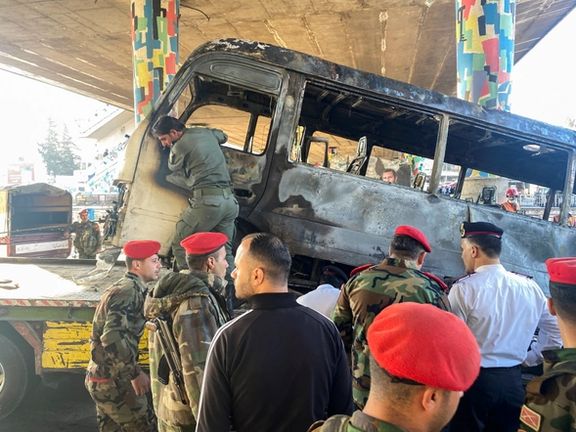
A bomb attack on an army bus in Damascus on Wednesday killed at least 14 people, followed by army shelling in rebel-held Idlib that killed 11 civilians.
The attack on the rebel-held town of Ariha, which took place shortly after the Damascus bombing, had caused the biggest civilian death toll in the Idlib area since March 2020, the Syrian Observatory for Human Rights said.
There was no immediate claim of responsibility for the Damascus bombing, which hit a bus carrying army personnel in the middle of the city at around 6:45 a.m. (0345 GMT), state television reported.
A military source quoted by state media said the bus was blown up by two bombs that had been attached to the vehicle in advance. A third device was defused by an army engineering unit.
Attacks in Damascus have been rare since the army crushed rebel enclaves around the city with backing from Russia and Iran-backed forces in 2018.
Islamic State militants still operate in the deserts of central and eastern Syrian desert, where they have mounted several attacks this year on army vehicles.
Northwestern Syria is the last major stronghold of rebels fighting Assad. The witnesses and rescue workers said shelling struck residential areas of the rebel-held town of Ariha shortly after the Damascus bomb attack.
Turkey's state-run Anadolu Agency said government forces and Iran-backed groups targeted a marketplace in the Ariha town center.
Reporting by Reuters